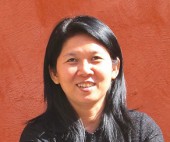No chance to practice genuine forgiveness in Myanmar
by Ma Thida / July 27, 2015 / No comments

U Bein Bridge, Myanmar. Photo Courtesy of Staffan Scherz.
On July 9th, people noticed that the infamous ex-General Aung Thaung was admitted to a state hospital in Nay Pyi Taw first for a severe brain hemorrhage, then transferred to Singapore. On social media that day, people posted how they were happy to know this. Many cartoonists posted their most mocking cartoons about his illness, mostly stating that hell is preparing to welcome him. People expressed most stunning responses this news. One grandson of the ex-dictator, Ne Win, posted on social media his feelings expressing that people were shameless in saying that they are happy to know someone is dying. Many people blamed him for his post. Some people confessed in their posts that they knew it was not an appropriate way to act while someone was dying but that they couldn’t hide their happiness. Indeed it is a tragic reality. People who desperately dislike all dictators and their followers do not even notice how their tender hearts have been left with historic scars. This is a good example of how injustice can only breed prejudice towards unjust people.

- Literature is an echoing voice of people’s thought. Myanmar literature and media have suffered a lot along with people during five decades of censorship. The majority of Myanmar’s population are voiceless, and many untold stories are yet to be discovered by local or international writers and journalists. Here let’s try to find and listen to what problems people are feeling, thinking, and facing regarding freedom of expression in everyday lives in Myanmar.

- Ma Thida is a Burmese human rights activist, writer, medical doctor, and former prisoner of consciousness. In 1993, she was sentenced to twenty years in Burma’s Insein Prison for actively supporting the Nobel laureate Aung San Suu Kyi. She served six years of her sentence, largely in solitary confinement and was released through the efforts of Amnesty International and PEN International. She has published nine books in Burmese and English, including The Sunflower (1999), The Roadmap (2011), and Sanchaung, Insein, Harvard (2012), a memoir. Ma Thida is currently president of PEN Myanmar.
Aung Thaung is currently a Lower House Member of Parliament of the Union Solidarity and Development Party (USDP) for the Taung Tha Township in Mandalay Division. He was Minister of Industry under the military regime from 1997 to 2011. Since he is known as someone who is “perpetuating violence, oppression, and corruption,” the United States blacklisted him last year. He and his family are thought to be one of the top five wealthiest families with multiple businesses in Myanmar. Most opposition and activists believe that he is one of the key hands behind the Depayin massacre in 2003. And even some Western diplomats believe that he “and a handful of other current members of the nation’s leadership directly financed anti-Muslim campaigns” after 2012. Learning this, among his even more unjust activities, it might not be strange that people are happy to know that he is suffering from a severe stroke and nearing dying.
Like him, there are many more ex-generals who have continued to benefit from everything at the cost of people’s lives and livelihoods since 1988. Therefore, people posted their wishes to have further bad news concerning other generals after Aung Thaung. Though the leader of the National League for Democracy (NLD), Aung San Suu Kyi, is trying to work together with all these ex-generals at the parliament, people still cannot accept them as their representatives. People still cannot think that there is a reformed government since their lives have not yet changed enough, apart from their new losses like loss of land, loss of livelihood, and loss of dignity, following the reform-induced local and international business projects.
Grassroots communities still cannot understand how the army is dividing itself into at least three different significant players: the army itself and executive and legislative representatives in the country’s politics. For them, Thein Sein, Shwe Mann, Min Aung Hlaing, Aung Thaung and even Khin Nyunt are the same trademarks of injustice, oppression, exploitation, corruption and selfishness, since they all are either former or current top leaders of the army; apart from Min Aung Hlaing, they all are from same political USDP party. People feel they have been cruelly betrayed and defeated by their own government and army for decades. They indeed want to reclaim justice by putting these criminals from old military and current ex-military governments onto just tribunals. However, Aung San Suu Kyi, her NLD, and most democratic activists keep educating them to claim justice only through non-violent means. Those people say they do not forget what they had suffered but that they could forgive. Therefore it is still possible to neglect the filing and documentation of the historic crises such as the 1988 massacre, the 1990 and 2007 monk strikes, the 1996 student strike, and the 2003 Depayin massacre.
However, people still do not have the chance to achieve genuine forgiveness of those criminals in our history. Why? New crimes are happening beyond the 2012 by-elections. All of the scary, violent killings beyond 2012 were not just enacted by the army directly, but mainly by an “angry mob” or “trained police force”. More than 200 people were killed during communal conflicts in the Rakhine state, Meiktila, other cities, and Mandalay in 2012, 2013 and 2014. Protesting monks were burnt by phosphorous bombs, and a farmer was shot to death during Letpadaung crisis. A freelance reporter was killed by the army in early 2015, and no action has been taken concerning the shooter so far, so it sounds like impunity for crimes against journalists has been allowed in this country.
Student strikes were treated very badly and the authority broke its promise not to take legal action against student protestors in their earlier negotiation agreement in 2015. However, all ex-generals of both executive and legislative bodies continue to express their gratitude toward the military junta for allowing the country to adopt a reform process towards democracy via the 2008 Constitution, which is recognized by opposition parties, activists, and CSOs. They even encourage people to learn more about what they call the “goodwill” of ex- (or current-) dictator Senior General Than Shwe for letting the country walking on its path to disciplined democracy, while people believe he is still responsible for all negative impact of their country. Without acknowledgement of the mistakes and articulation of apologies, grassroots supporters have no chance to practice their genuine forgiveness.
In fact, acknowledging mistakes and apologizing accordingly to the respective population are not just good acts, but are key for regaining self-confidence for sinners and rebuilding a peaceful relationship with others. Usually, dictators and their gang members never confess their wrong doing. They keep denying their guilt. This attitude, in reality, simply shows how much guilt they feel already. Therefore the people’s reaction towards the news of Aung Thaung’s coma is pretty overwhelming. A month before he was in coma, on June 19, during his visit to Upper Burma town called Taungdwingyi, he stated that his party, USDP, had many capable persons and they are capable of any high post in administration, even a post higher than president. Instead of either confessing or apologizing for the wrong-doing, people developed this kind of guilt-conscious arrogance. People felt these sinners like Aung Thaung have lost their self-confidence in their capacity of how to build a well and developed country. Otherwise, he could not say they all are very capable. By saying this, he and his party also lost empathy from people. Then what happened next?
Aung Thaung was sent to Singapore at a very low consciousness level. People wanted him (and other military leaders) to feel regret about his (and their) misdeeds and to stop committing them. Grassroots supporters are fed up with hoping one day that the leaders all might give up bullying them after acknowledging their own sins. However, at least one militant leader has now gone away from the power without making any apology. Anyhow, people enjoy learning that he might not be able to commit any further crimes against humanity towards them. It is still true that grassroots people were hoping to practice their genuine forgiveness, but they have not yet had any chance to do so.




